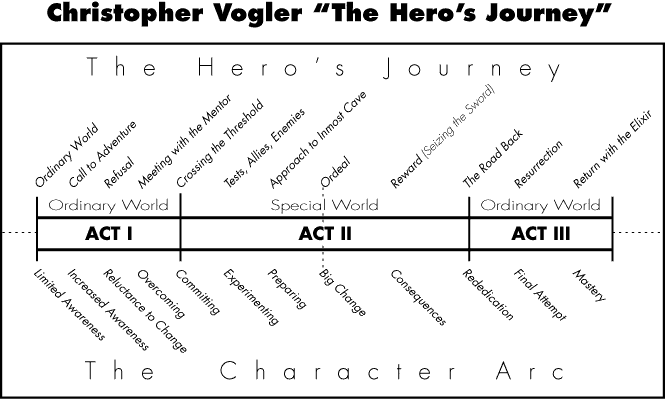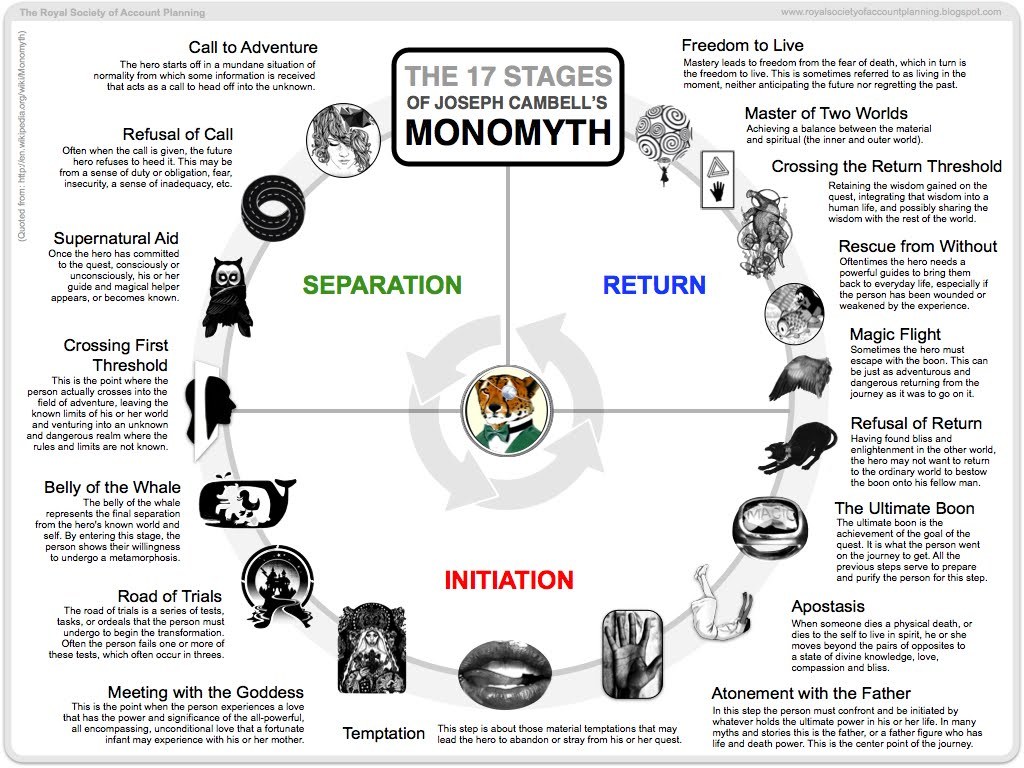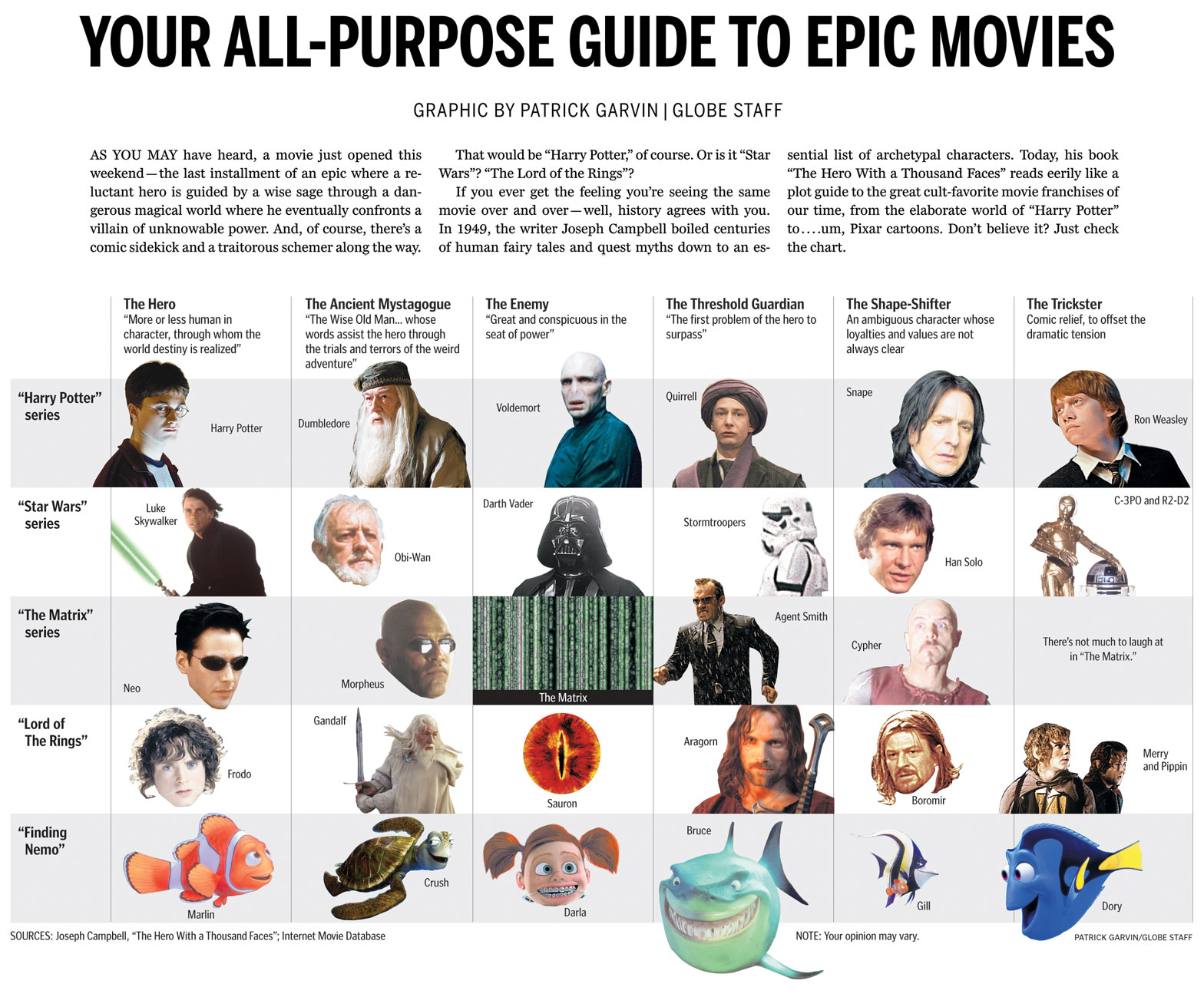J
Jason Byrne
Guest
Check out these images:



These represent the stages and archetypes of Joseph Campbell's "Hero's Journey," to which nearly all stories can be reduced, and which appears in the mythology of every culture — in every time period — of human history, from Gilgamesh to the Star Wars VII (which is awesome).
Sorry — the fine print is hard to see on the second image.
In general, it is kind of fun to look at these and see how your own story follows this structure.
In particular, to those of you who have read my first chapter and have returned feedback — @Karen Gray, @Nicole Wilson, @Bernard Stacey, @Marc Joan, and @Alistair Roberts — my wife brought up a good point last night: doesn't it seem to you that I skipped right over The Ordinary World, and started in the middle of the Call to Adventure?
"Something shakes up the situation, either from external pressures or from something rising up from deep within, so the hero must face the beginnings of change."
I'm considering inserting a chapter ahead of the opening I've kept for five years, to get a glimpse of The Ordinary World, of Alyn and County Bartholomew. What do you think?
"The hero, uneasy, uncomfortable or unaware, is introduced sympathetically so the audience can identify with the situation or dilemma. The hero is shown against a background of environment, heredity, and personal history. Some kind of polarity in the hero’s life is pulling in different directions and causing stress."
If you want some further reading, here's a link to get you started: The Hero's Journey



These represent the stages and archetypes of Joseph Campbell's "Hero's Journey," to which nearly all stories can be reduced, and which appears in the mythology of every culture — in every time period — of human history, from Gilgamesh to the Star Wars VII (which is awesome).
Sorry — the fine print is hard to see on the second image.
In general, it is kind of fun to look at these and see how your own story follows this structure.
In particular, to those of you who have read my first chapter and have returned feedback — @Karen Gray, @Nicole Wilson, @Bernard Stacey, @Marc Joan, and @Alistair Roberts — my wife brought up a good point last night: doesn't it seem to you that I skipped right over The Ordinary World, and started in the middle of the Call to Adventure?
"Something shakes up the situation, either from external pressures or from something rising up from deep within, so the hero must face the beginnings of change."
I'm considering inserting a chapter ahead of the opening I've kept for five years, to get a glimpse of The Ordinary World, of Alyn and County Bartholomew. What do you think?
"The hero, uneasy, uncomfortable or unaware, is introduced sympathetically so the audience can identify with the situation or dilemma. The hero is shown against a background of environment, heredity, and personal history. Some kind of polarity in the hero’s life is pulling in different directions and causing stress."
If you want some further reading, here's a link to get you started: The Hero's Journey
Last edited:
